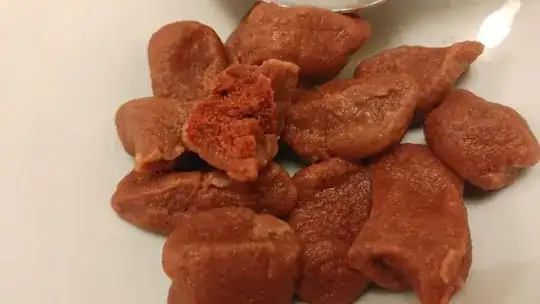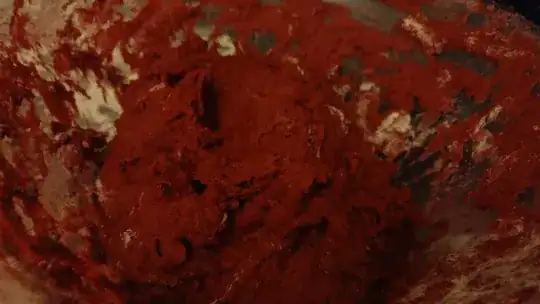First time I tried making gnocchi (or any pasta type). I followed the orders but my gnocchi are pretty sticky (maybe there's a better word?).
It feels like a pasta that was overcooked on a low flame and so it took a lot of time to be ready.
What can be the cause? Too much or too little flour?
The ingredients are:
- 3 medium-big beets
- 1 medium-big (white) potato
- I think that almost 1kg of whole wheat flour
- Salt
The beets and potato were wrapped in aluminium foil in the oven until soft, and then blended - then started adding flour until it reached a form that I can roll it to cut pieces.
I still have a lot of it, anything I can do to fix the dough?
And how long can I keep it (fridge/freezer?) in case I don't have enough of the ingredients to fix it at the moment?
Photos of the gnocchi and dough:
How the dough behave - (link to GIF, can't compress it more to upload it here)
The inside:
The rest of the dough
Thanks!

